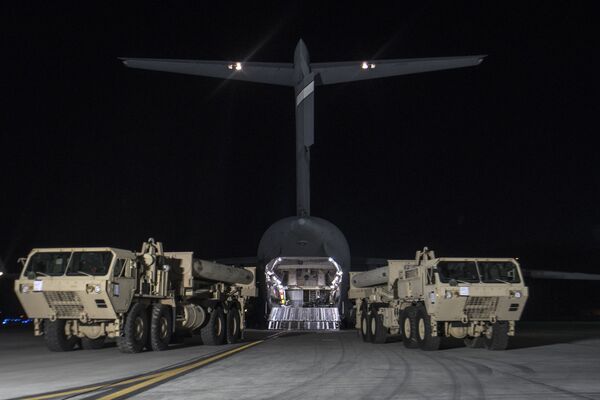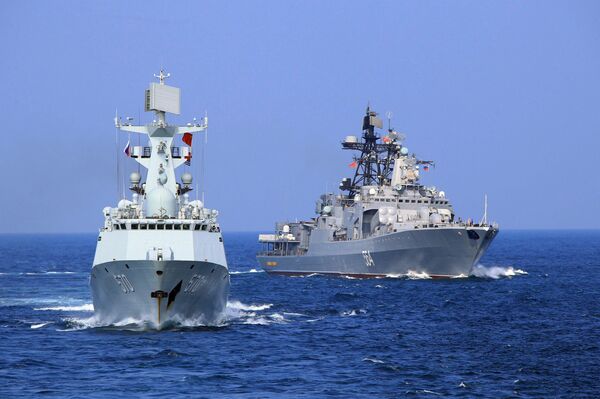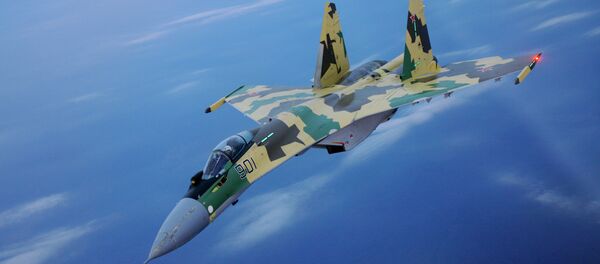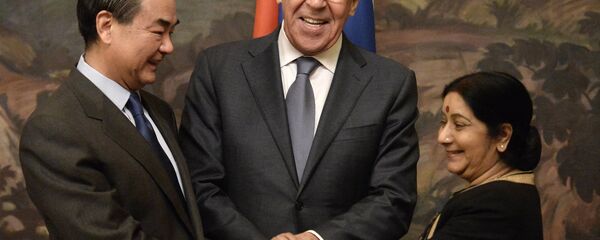Put out earlier this week, the report, created by the US-China Economic & Security Review Commission, indicates that Russian-Chinese military cooperation, including arms deals, joint war-games and increased contacts, has reached a level which "could pose challenges" to the US and its allies, particularly in the Asia Pacific Region.
The Congressional report explains that the S-400s in particular could "pose a challenge for Taiwan's air assets" and those of its US allies, in the event of a potential cross-Strait conflict. The Su-35s, meanwhile, would "help the [PLA] contest US air superiority, provide China with technology that could help accelerate the development of its own advanced fighters, and serve as a valuable training and learning platform before China fields its next-generation aircraft."
Additionally, the focus on missile defense in recent joint exercises is also concerning to the analysts. Commenting on the latter aspect of the report, Radio Sputnik contributor Ilya Kharlamov suggested that US strategists' concerns are understandable, if not entirely warranted.
Of course, Kharlamov remarked, it would be much more agreeable for Washington to simply deploy its own missile defense system in the region, "disregarding the fears of other countries. Like in South Korea for example." Unfortunately for US planners, the observer added, the tone of the report, referring to Washington's effort to continue to ensure its supremacy over the region – is becoming increasingly obsolete amid the global drive to multipolarity – and not just in Asia, but other regions, including the Middle East, as well.

"In the triangle between the great powers of the US, Russia and China, the US side isn't looking very confident either," the commentator noted. "Relations with Moscow have been damaged, and for a long time." Washington has gone out of its way to ensure that, Kharlamov added.
China, naturally, does not appreciate this, and the issue has already led to diplomatic scandals. "Furthermore, Washington is trying to offset the capabilities of Chinese nuclear forces by deploying the above-mentioned elements of missile defense in Asia."

For its part, Russia is concerned about US and NATO military activity around the globe, including in Asia. "At the same time, Beijing and Moscow regard one another as strategic partners. It's being said at the highest level that relations between the two countries have reached a level not yet seen in the history of their relations. And here," importantly, "it's not only a question of energy supplies and the delivery of Russian hydrocarbons," the commentator stressed.
In the report to Congress, analysts attempted to attribute this undesirable convergence of Moscow and Beijing's positions to the personal relations between the two countries' leaders – Vladimir Putin and Xi Jinping, and to some historical factors. "They say," Kharlamov noted, "that China is looking to get revenge for the recent era of humiliation and aggression by the West, while Russia is looking to fight back following the collapse of the Soviet Union and NATO's expansion in Europe."
But such conclusions are weak at best, the analyst suggested. "Beijing and Moscow are drawn together not so much by history or abstract philosophy as they are by life itself – by common interests and a closeness in their approach to the architecture of international relations, which should be based, at a minimum, on mutual respect and the consideration of one another's interests. And this is what remains unacceptable for [many] politicians in Washington."
"But this does not mean that strategic partners will look indifferently toward what is happening next door in the event of a major conflict, either," the analyst added. "Admittedly, even individually, each are capable of neutralizing any external threats," he concluded.







